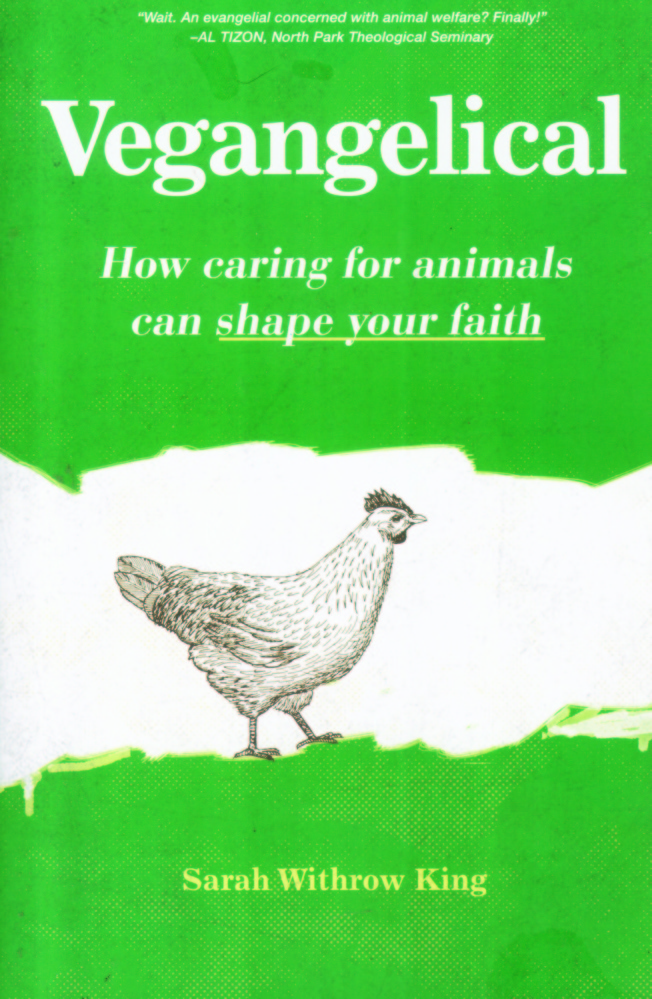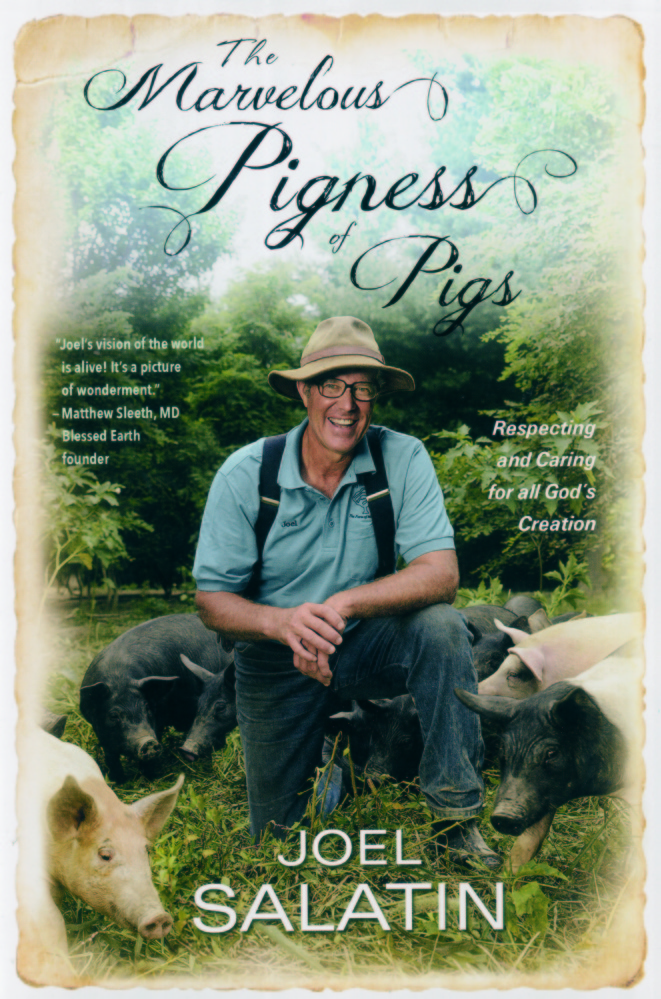Two recently published books with a similar theme have got us thinking about the intersection of faith, farming and animals.
IN THE SLIM, approachable “Vegangelical: How caring for animals can shape your faith,” author Sarah Withrow King makes the biblical case for veganism. In the first half of the book, she lays the theological groundwork, beginning with the beginning: “From the first days of creation, animals and humans were intimately connected. Genesis 2 tells us that Adam named the animals, an act that denotes intimacy and familiarity … God’s covenant is with humans and animals.” In the second half, King, who has a masters in theological studies, describes how animals in today’s world are treated whether as pets, food, clothing or for research, and she asks readers to consider, “Are these practices compatible with my faith?” For her, though she is never judgmental or strident, the answer is an unequivocal no. Every chapter of “Vegangelical” (Zondervan, $16.99) ends with discussion questions, emphasizing that the book is meant to stimulate debate and, perhaps, a transformed diet.
SOURCE READERS may be familiar with third-generation farmer and writer Joel Salatin, whose farm was spotlighted in Michael Pollan’s bestseller “The Omnivore’s Dilemma” and who has been featured in several food/farm documentaries. His latest book, his 10th, “The Marvelous Pigness of Pigs: Respecting and Caring for All God’s Creation” (FaithWords, $25) opens with the divisions and tensions he feels between his Christian and his environmentalist beliefs. In a book he says he aimed at Christians, he makes an impassioned and provocative argument that America’s food system should reflect Christian spiritual truths.
In a characteristic section, Salatin describes driving through the countryside and seeing “field after field receiving soil-harming chemical fertilizers, being continuously grazed and overgrazed, plowed and pillaged, my heart breaks. To see God’s creation abused, rejected, and raped is no less tragic than seeing people abused, raped and pillaged… Remember how you care for God’s physical stuff reflects how you care for his spiritual stuff.”
Writing with similar heart throughout, Salatin covers a lot of territory, from home-schooling, confinement dairies and GMOs to chemical fertilizers and junk food. About that last, he writes, “While preachers rail against bringing junk into our homes via TV, the Internet, and pornographic literature, few bat an eye at a home stashed high with high-fructose corn syrup, potato chips, and Pop-Tarts.”
Copy the Story LinkSend questions/comments to the editors.





Success. Please wait for the page to reload. If the page does not reload within 5 seconds, please refresh the page.
Enter your email and password to access comments.
Hi, to comment on stories you must . This profile is in addition to your subscription and website login.
Already have a commenting profile? .
Invalid username/password.
Please check your email to confirm and complete your registration.
Only subscribers are eligible to post comments. Please subscribe or login first for digital access. Here’s why.
Use the form below to reset your password. When you've submitted your account email, we will send an email with a reset code.